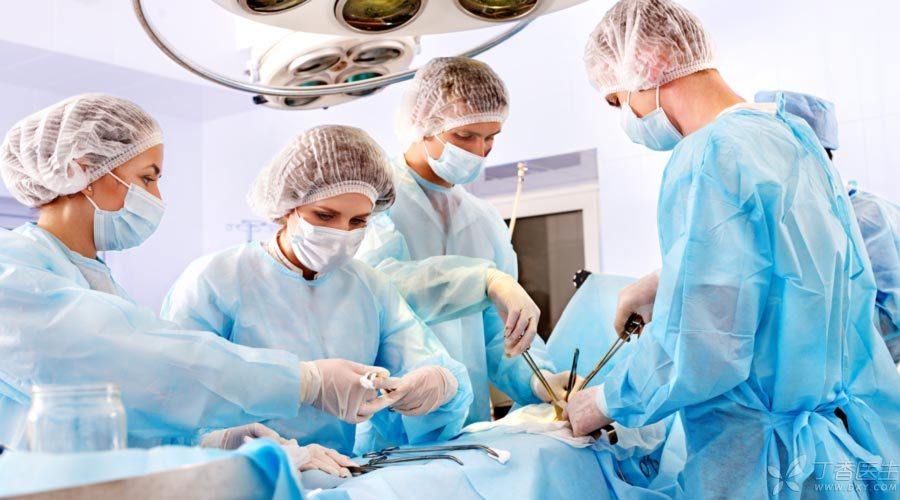
Thyroid cancer is a malignant tumor occurring in thyroid gland and is also the most common malignant tumor in endocrine system.
However, unlike other malignant tumors, the 20-year survival rate of thyroid cancer exceeds 90%.
1. Will thyroid nodules definitely develop into thyroid cancer?
Thyroid nodule refers to a lump growing in the thyroid gland, which is one of the common manifestations of thyroid diseases and is not a specific disease.
Clinically, only a few of them are thyroid cancers, and the rest are benign.
Although there is currently no evidence that benign nodules may transform into malignant nodules, asymptomatic nodules usually need regular examination.
2. Why do you get thyroid cancer?
Up to now, the etiology of thyroid cancer is still not completely clear. However, it may be related to the following reasons:
- History of head and neck radiation exposure or exposure to radioactive dust in childhood; History of systemic radiotherapy; Excessive iodine intake; Having a past or family history of thyroid cancer; Female; Age < 14 years old or > 70 years old.
3. Does thyroid cancer show what?
Thyroid cancer does not have obvious manifestations in the early stage. It is often treated with painless neck masses or nodules, or nodules are found in physical examination. Thyroid cancer is found in further examination. Thyroid nodules generally do not cause neck or throat discomfort.
4. What if thyroid cancer is found?
At present, there are several treatment schemes for thyroid cancer:
- Surgical treatment; TSH inhibition therapy and thyroxine replacement therapy; Iodine isotope 131 therapy; Targeted drug therapy, chemotherapy, palliative treatment, etc.
Surgical resection is recommended for all thyroid cancer once diagnosed. By surgery, Not only can the primary lesion be clearly identified, It can also accurately judge the tissue type and stage of cancer, lymph node metastasis and other conditions, It is of positive significance to the future prognosis. At present, Japan and some western developed countries have proposed a [active monitoring] treatment strategy. That is to say, the diagnosis of thyroid cancer does not immediately operate, only through regular reexamination, to grasp the trend of thyroid cancer, only to take active treatment for patients with malignant biological behavior. However, this method is still controversial and seldom carried out in China.
5. What are the types of thyroid cancer surgery?
Thyroid surgery is mainly divided into two types:
- Total or near total thyroidectomy with or without lymph node dissection; Thyroid lobectomy.
6. Do you still need to take medicine for a long time after thyroid cancer surgery?
Thyroxine replacement therapy is generally required for life because most or all of the thyroid gland is removed due to surgery and thyroxine secretion is reduced. Some patients may need to take thyroxine doses in excess of the replacement therapy.
In addition, if hypoparathyroidism occurs after surgery, calcium and active vitamin D need to be supplemented.
As for the dosage of thyroxine, it will vary according to the recurrence after operation:
- TSH in high-risk patients should be inhibited below 0.1 mU/L; TSH was inhibited between 0.1 mU/L and 0.5 mU/L in patients with moderate risk; In low-risk patients, TSH can be inhibited between 0.5 ~ 2 mU/L.
In addition, age, cardiac function and other conditions should also be considered, as should tolerance to thyroid drugs.
7. How to treat complications after thyroid cancer surgery?
The treatment of patients with postoperative complications is mainly divided into the following types:
-
Hypoparathyroidism: It can be divided into temporary and permanent, and their clinical manifestations are hypocalcemia. The main treatment methods are active vitamin D and calcium, while monitoring blood electrolyte and parathyroid hormone levels.
-
Hoarseness and difficulty in speaking: Most of them are due to injuries to the recurrent laryngeal nerve, which controls vocalization, during the operation, and some of them can gradually recover after the operation.
8. What sequelae may occur after thyroid surgery?
Common sequelae after thyroidectomy include hoarseness, difficulty in speaking, hypoparathyroidism, hemorrhage, infection, tracheal/esophageal injury, etc.
9. How often does thyroid cancer patients have reexamination after surgery?
Regular follow-up is very important for patients with thyroid cancer after surgery. Regular monitoring of thyroid hormone and TSH levels should be carried out once a month during the dose adjustment period and once every 3-6 months thereafter to avoid side effects caused by excessive or insufficient drugs and affect the therapeutic effect.
It is usually necessary to regularly improve thyroid color Doppler ultrasound examination.
10. What precautions do thyroid cancer patients have after surgery?
1. Cultivate good living habits
- Avoid overwork and keep adequate sleep. Maintain a healthy and positive attitude; Exercise properly.
2. Follow the doctor’s advice and follow up.
- Take the medicine according to the doctor’s advice and review it regularly. When you feel uncomfortable, you should see a doctor again in time.
